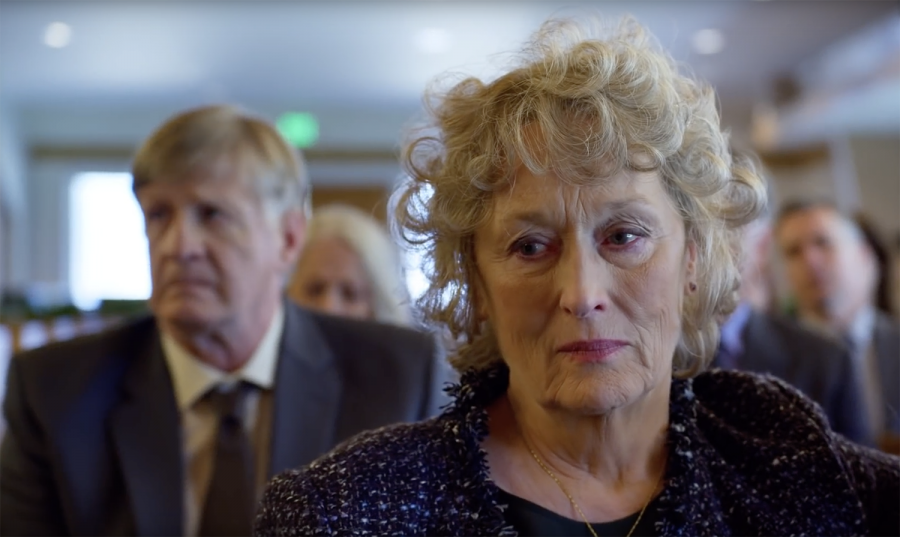‘The Laundromat’ Is Star-Studded and Half-Baked
Steven Soderbergh’s latest film is a swing and … not a miss, but definitely one of those awkward skid-roll-bounces.
October 4, 2019
In less than a minute, Steven Soderbergh affirms what we already knew to be true: Antonio Banderas is, and will always be, a stone-cold fox. Suit-clad and smugly traversing the fourth wall at every turn, Ramón Fonseca (Banderas) and Jürgen Mossack (Gary Oldman) narrate the “life of money” while traversing a “2001”-esque sound stage. Cavemen cavort in the background, and we get the feeling that this is not the last time we will be so patronized.
Soderbergh, in his latest release “The Laundromat,” then launches into one of the many narratives he’ll try to string together over the course of the film — this with Ellen Martin (Meryl Streep) firmly at its center. Ellen, a consummate Plain Jane, takes a boat tour with her husband (James Cromwell) in upstate New York. The boat capsizes, and her husband, along with 20 others, drowns. Ellen hopes to get at least a settlement out of this grave incident, but when neither she nor the boat operators can get ahold of the insurance company responsible, Ellen flies to Nevis — a small island in the West Indies — in search of justice and a man called Boncamper (Jeffrey Wright). What she finds instead is a big load of financial corruption.
Ellen, we learn, is the victim of money laundering through shell companies. Shells are abstractions that exist only on paper—impressions of businesses, designed to disguise and retain wealth for the already grotesquely wealthy. It is the key to tax evasion on the grandest scale, but only the tip of the iceberg in “The Laundromat.”
Through more smarmy interludes with Fonseca and Mossack, we’re schooled in the precise choreography of other corporate misdeeds. The case of adultery in a wealthy African family becomes a lesson in bribery and fake bearer shares. “The world is just men hiding behind pieces of paper,” laments Miranda (Nikki Amuka-Bird), after realizing her husband bought her silence with a company worth “a little less than $37.”
While this a poignant observation, it is also indicative of a major fault in “The Laundromat” — its need to cram too many quotable one-liners into 96 minutes. In isolation, they would be great, but the repetitiveness weakens the punch.
In a promising attempt to give structure to an ever more confusing web of corporate malice, chapter titles punctuate the film’s vignettes. These gaudy additions, however, only further muddle the story with their introduction of highfalutin concepts.
If it sounds like it doesn’t quite come together, that’s because it doesn’t. The meek, unfortunately, will not inherit the earth. At the end of the film, Streep not only breaks the fourth wall, but her character, and suddenly, a rather resigned Ellen is talking at us about corporate deceit. No one likes to be spoon-fed, especially with such didactic dialogue.
“The Laundromat” thinks it will incite protest in the streets, but it is simply a clumsy picture of greed that fixes people in their helplessness. The uber-rich not only have advantages, but they move through an entirely different world — one in which rules are rewritten in their favor but the fact of that revision remains forever concealed.
Email Beth Crawford at [email protected].
























































































































































